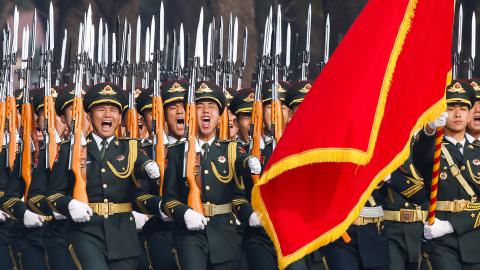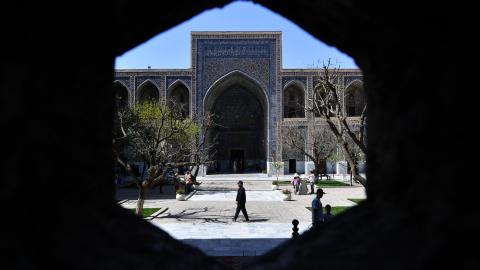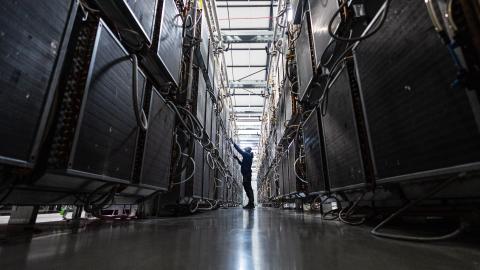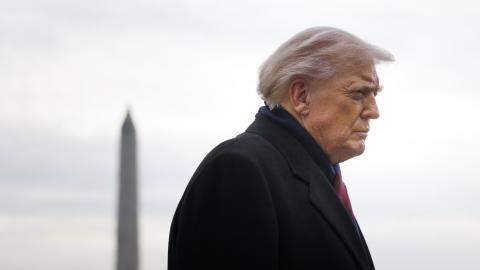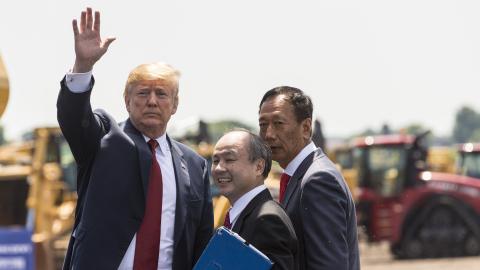One of President Joe Biden’s last acts in office may be to kill the Nippon Steel Company’s potential $20 billion acquisition of and investment in US Steel.
This steel deal not only represents one of the single largest investments by a Japanese company in the United States in recent years; it is also a necessary lifeline for US Steel’s operations in Pittsburgh, Pennsylvania.
Many Japanese businesses are worried about the lasting impact a dead deal will have on US-Japan economic relations. Their concerns shouldn’t be ignored given that Japanese investors are the largest contributor of foreign investment in the US.
While killing the deal would be tragic, SoftBank CEO Masayoshi Son’s recent announcement of a $100 billion investment in the US over the coming years shows that the US-Japan economic partnership is bigger than one deal, especially considering how politically sensitive this steel deal has been for the Biden administration.
President Biden has demonstrated from the beginning of the deal’s negotiations that his administration values solidarity with the United Steelworkers’ management, who oppose to the deal despite that a majority of union members in Pittsburgh now want the deal.
The president has also continued to show a personal preference to keep US Steel “domestically owned and operated.” Meanwhile, his cabinet has been divided on whether there is any real national security justification for killing the deal.
The Committee on Foreign Investment in the United States (CFIUS), which reviews foreign investments for potential threats to US national security, has been looking at the potential Japanese investment for months.
Recent reporting suggests security agencies like the Department of Defense are okay with the deal but economic agencies like the Office of the US Trade Representative are not. A lack of consensus among the committee simply means what many already have guessed: that the fate of the steel deal is for Biden himself to decide.
While the committee is meant to keep US investments and national security from becoming politicized, it seems every few years a deal is so politically sensitive that this is just not possible.
For example, in 2006, when Congress caught wind of a state-owned company of the United Arab Emirates taking over the management of several ports on the East Coast, backlash on Capitol Hill ultimately led to the deal’s falling apart and a reform of the CFIUS process.
Again in 2013, members of Congress quickly took interest in the purchase of Smithfield Foods by a Chinese company. It has been over a decade since CFIUS approved this deal, yet the biggest controversy to come from it has been an increased interest in Chinese ownership of US farmland—of which Smithfield owns about three-quarters.
Likewise, the steel deal has been a perfect storm for US Steel and Nippon Steel. The US steel industry is historically sensitive to US trade and economic policy. In addition, Biden and his cabinet have frequently branded themselves the a very pro-union administration. Finally, it is not hard to see the 2024 presidential election’s influence on Biden’s opposition of the deal.
Despite the political motivations, killing the deal would still be a major speed bump in US-Japan economic relations given that many are already worried about what US foreign policy will look like under the incoming Trump administration.
Many are worried about new trade restrictions in the near term, including tariffs on Japanese exports and possible trade wars between the US and China or Mexico.
But for now, there is still justified optimism for the future of US-Japan relations, like that shown by SoftBank’s Son.
While many see Trump’s potential trade policies as his administration’s way of being staunch negotiators, there are also great expectations for his tax and energy policies to spur growth.
Over the next several years, Japanese investors will likely remain a significant contributor to the US economy.
Under the Trump administration, American and Japanese officials are likely to deepen their cooperation in areas like technology as the US looks to build a new innovation alliance. And the US-Japan security alliance will only continue to develop to face new challenges across the Pacific.
While it’s unfortunate that the steel deal has had to face an unprecedented level of political challenges this past year, the US-Japan relationship is stronger than one deal.
